The PNCWA board issued a statement last week calling on PNCWA members to “commit time to be educated, to increase your understanding, and to promote ideas and programs that eliminate structural racism in our organization, region, and the communities we serve.” In follow up to that message, here are some actions that PNCWA has been and will continue to take promote diversity and social and racial justice.
Our Members Services Committee has a goal for the PNCWA membership and the water industry to represent the communities we serve. We recognize that overall, the water industry lacks racial and gender diversity that truly mimics and represents our communities and we want to change that. At our 2019 PNCWA conference in Portland, 13% of attendees were people of color (PNCWA conference Survey data) compared to the population of Oregon, which is composed of 25% people of color (US census data). Similarly, less than 20% of the conference attendees were women. We strive to increase the diversity of both our membership and our leadership. We have therefore developed a goal to increase diversity in membership by 2025 with a targets to increase membership of women, people of color, and young professionals.
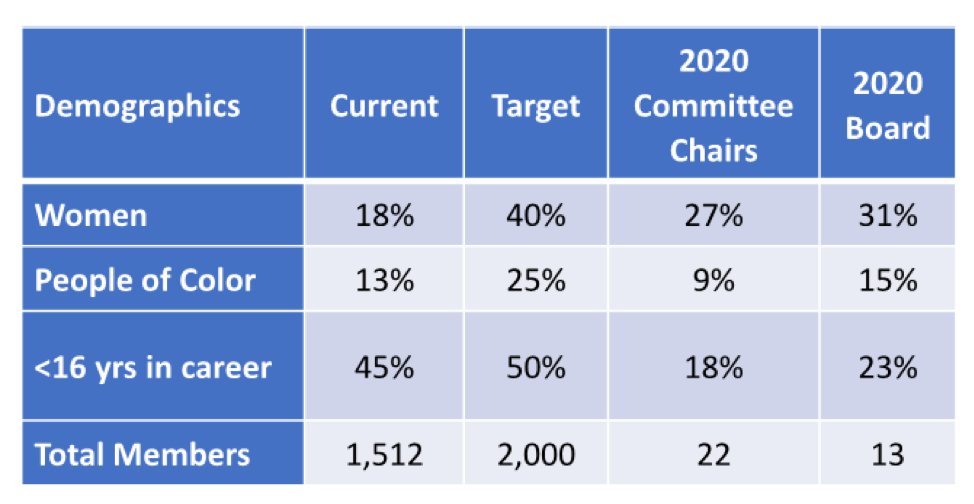
Table 1: PNCWA current and target demographics. Target demographics are defined for new joining members.

 Want to stay updated on regulatory changes in the PNW but don't have time to track all the different agencies? You don't have to! The PNCWA Government Affairs Committee stays on top of issues and gives monthly updates in the PNCWA digest. Not signed up for the digest? We've got you covered. Sign up
Want to stay updated on regulatory changes in the PNW but don't have time to track all the different agencies? You don't have to! The PNCWA Government Affairs Committee stays on top of issues and gives monthly updates in the PNCWA digest. Not signed up for the digest? We've got you covered. Sign up 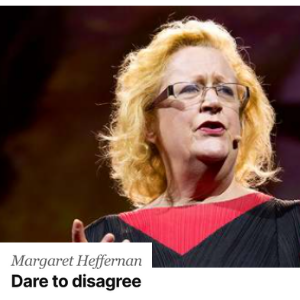 Leadership Corner
Leadership Corner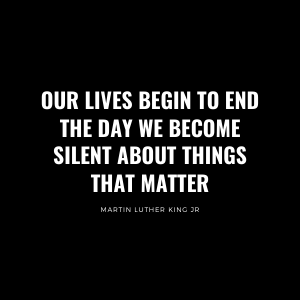 PNCWA exists for the, “education… increased public understanding, and promotion of sound public laws and programs in the water resources and related environmental fields.” Like all of our members, PNCWA believes that the right to clean water and sanitation is a basic human right, just like the right to Life, Liberty, and the Pursuit of Happiness. And yet the recent senseless murders of Black Americans such as George Floyd, Ahmaud Arbery, and Breonna Taylor have shown us that we cannot talk about protecting human health and the environment without talking about the systemic racism and injustice that has existed from our nation’s beginning and still exists today. We realize our silence and inaction makes us complicit in denying certain segments of our population, like the Black Community, of their basic rights, not just to clean water but to life itself. We have much to learn.
PNCWA exists for the, “education… increased public understanding, and promotion of sound public laws and programs in the water resources and related environmental fields.” Like all of our members, PNCWA believes that the right to clean water and sanitation is a basic human right, just like the right to Life, Liberty, and the Pursuit of Happiness. And yet the recent senseless murders of Black Americans such as George Floyd, Ahmaud Arbery, and Breonna Taylor have shown us that we cannot talk about protecting human health and the environment without talking about the systemic racism and injustice that has existed from our nation’s beginning and still exists today. We realize our silence and inaction makes us complicit in denying certain segments of our population, like the Black Community, of their basic rights, not just to clean water but to life itself. We have much to learn.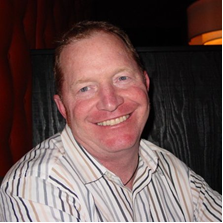 When the Covid-19 crisis broke it impacted us all a little differently, but it was a reminder to all of us about the power of human connection. Mark Walter is the new PNCWA Contract Manager. His role is to facilitate connection between contracted vendors as well as to connect PNCWA members to the resources and support they need. While not a stranger to PNCWA involvement, we asked Mark to tell us a little more about himself, in his own words.
When the Covid-19 crisis broke it impacted us all a little differently, but it was a reminder to all of us about the power of human connection. Mark Walter is the new PNCWA Contract Manager. His role is to facilitate connection between contracted vendors as well as to connect PNCWA members to the resources and support they need. While not a stranger to PNCWA involvement, we asked Mark to tell us a little more about himself, in his own words. Leadership Corner
Leadership Corner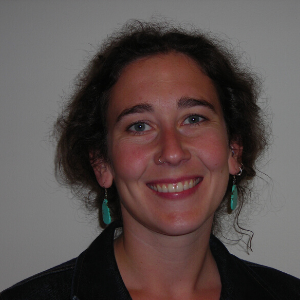 Wow. What a wild year we’ve experienced already and we’re not even to summer yet. So far 2020 has made us strive for flexibility as we adapt to a new normal at home and work. For many, those places have merged to become one location. We’ve seen unprecedented rates of unemployment too, as the impact of social distancing restrictions rippled throughout our communities. This is truly an unprecedented time. Never has it been more important to be there for each other. We all need a support system, and the PNCWA community is one of those support systems. We are stronger when we are together (maintaining an appropriate physical distance, of course).
Wow. What a wild year we’ve experienced already and we’re not even to summer yet. So far 2020 has made us strive for flexibility as we adapt to a new normal at home and work. For many, those places have merged to become one location. We’ve seen unprecedented rates of unemployment too, as the impact of social distancing restrictions rippled throughout our communities. This is truly an unprecedented time. Never has it been more important to be there for each other. We all need a support system, and the PNCWA community is one of those support systems. We are stronger when we are together (maintaining an appropriate physical distance, of course). 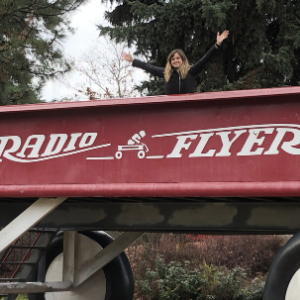 Greetings Pacific Northwest Clean Water Professionals!
Greetings Pacific Northwest Clean Water Professionals!  The 2020 YP Summit theme was “amping up our communication game.” The way we communicate within our organizations and with our customers is just as fundamental to our daily business as any other task or strategy we perform in the water industry. Erica Haide, Senior Marketing Coordinator at Brown and Caldwell (Portland), was one of our PNCWA YP representatives at the summit. She gave us her top takeaways from the summit below.
The 2020 YP Summit theme was “amping up our communication game.” The way we communicate within our organizations and with our customers is just as fundamental to our daily business as any other task or strategy we perform in the water industry. Erica Haide, Senior Marketing Coordinator at Brown and Caldwell (Portland), was one of our PNCWA YP representatives at the summit. She gave us her top takeaways from the summit below.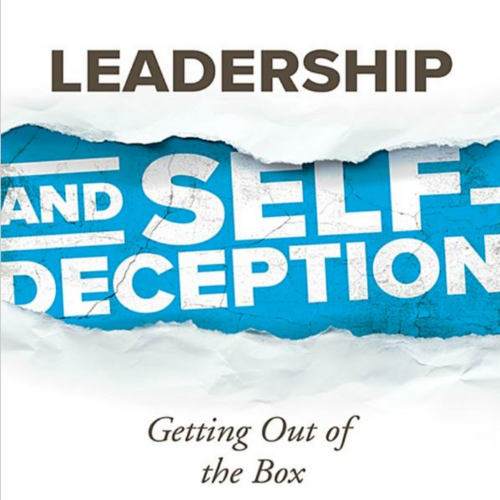 This month's book recommendation comes from Leadership Committee Member, Pamela Randolph, Wastewater Treatment Plant Manager at the City of Edmonds, WA.
This month's book recommendation comes from Leadership Committee Member, Pamela Randolph, Wastewater Treatment Plant Manager at the City of Edmonds, WA. 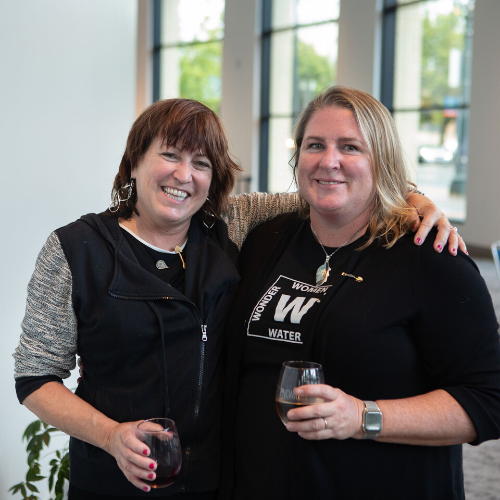 “Starting the Women in Water group in Boise means creating a space where women can start a connection with people they might never have met…”
“Starting the Women in Water group in Boise means creating a space where women can start a connection with people they might never have met…” 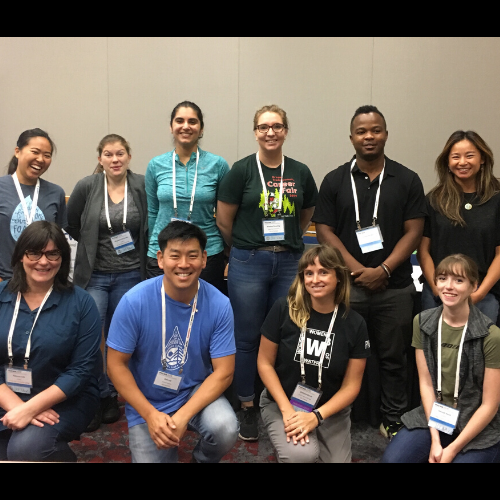
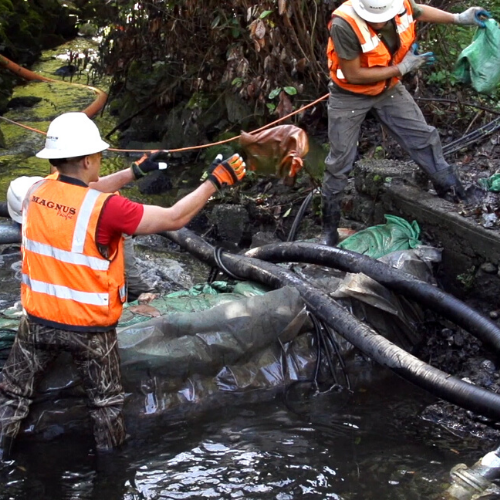 Thornton Creek is familiar to you as the 18-mile urban creek that runs from Southeast Shoreline through to Northeast Seattle. The creek has been manipulated extensively over the past decades as it was solely a flood conveyance system for the area; however, from these alterations, it became less hospitable for the fish and wildlife. For the fish to thrive, the water layers need to interact in a cyclical habitat, which cleanses the water of waste and regulates the temperature of the water.
Thornton Creek is familiar to you as the 18-mile urban creek that runs from Southeast Shoreline through to Northeast Seattle. The creek has been manipulated extensively over the past decades as it was solely a flood conveyance system for the area; however, from these alterations, it became less hospitable for the fish and wildlife. For the fish to thrive, the water layers need to interact in a cyclical habitat, which cleanses the water of waste and regulates the temperature of the water.  The Leadership Development Committee is excited to announce its top recommended
The Leadership Development Committee is excited to announce its top recommended  As someone who has been part of hiring decisions, I’ve often heard the hiring rationale that the candidate “would be a good fit with our culture.”
As someone who has been part of hiring decisions, I’ve often heard the hiring rationale that the candidate “would be a good fit with our culture.”